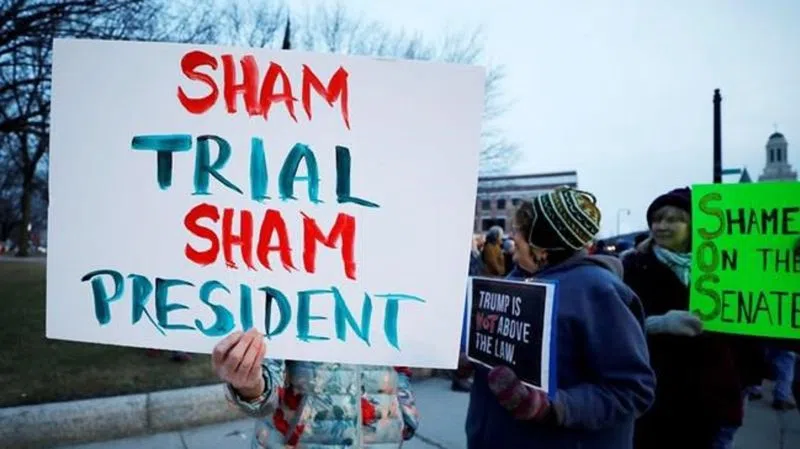
Impeachment loses its constitutional gravity in Trump case
WASHINGTON — Years from now, will you remember where you were and what you were doing when President Donald Trump was impeached? Have you forgotten already?
The country has been on a constitutional bullet train that took off with a whistleblower’s highly detailed account of wrongdoing, roared ahead through a cascade of tweets and lurched to a halt after more than four months of inquiry, angst and debate with Trump’s acquittal on Wednesday. So can you point to Ukraine on a map?
American children learn almost by rote that impeachment is a gravely serious proposition, the constitutional means for removing a president from office who commits “high crimes and misdemeanours.”
The words of founders like Alexander Hamilton, James Madison and George Mason are invoked from more than two centuries ago to remind everyone why they thought the federal government needed to have a means to undo an election.
